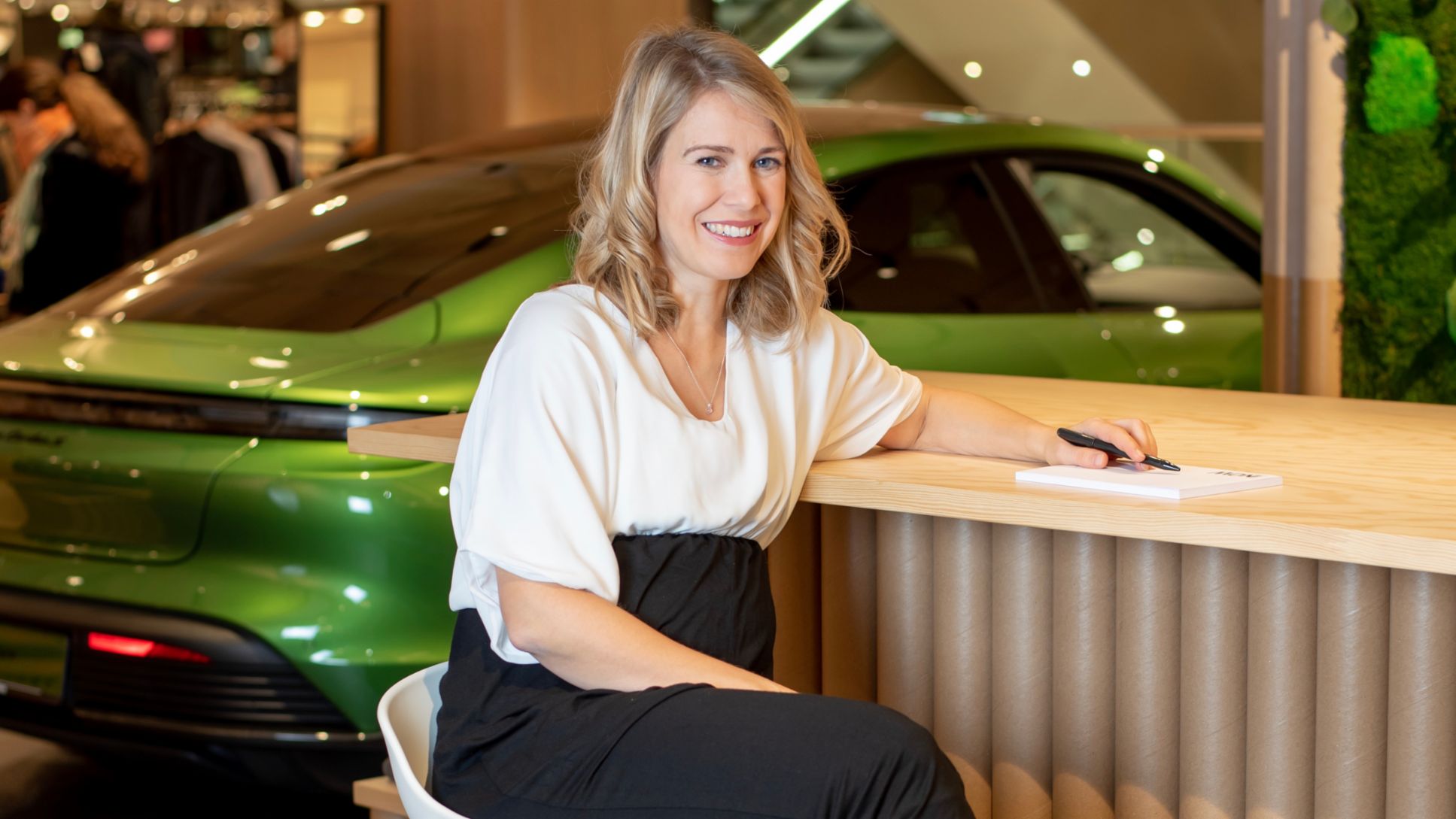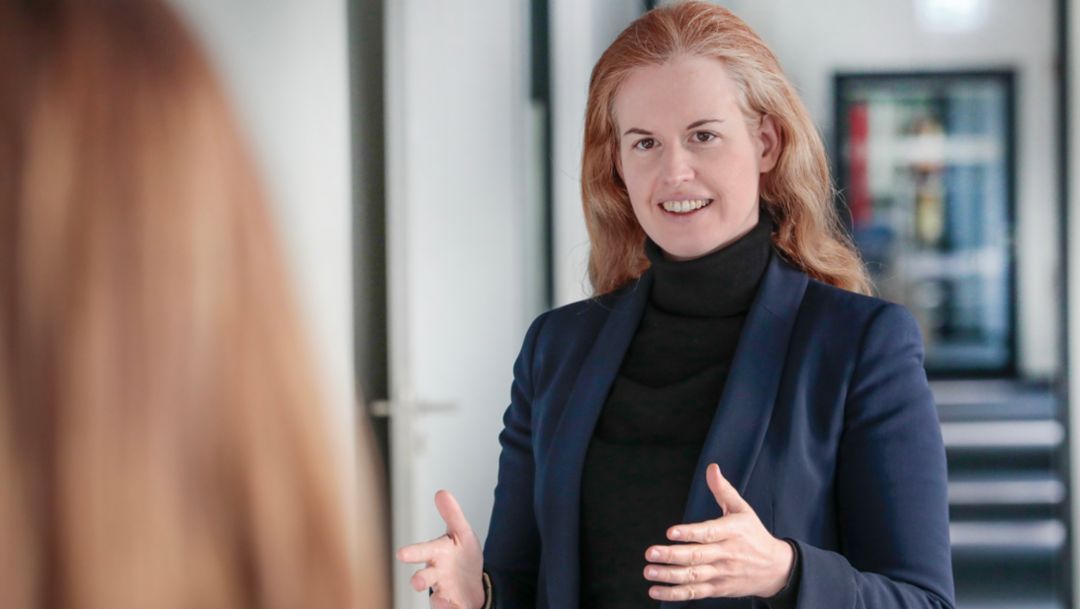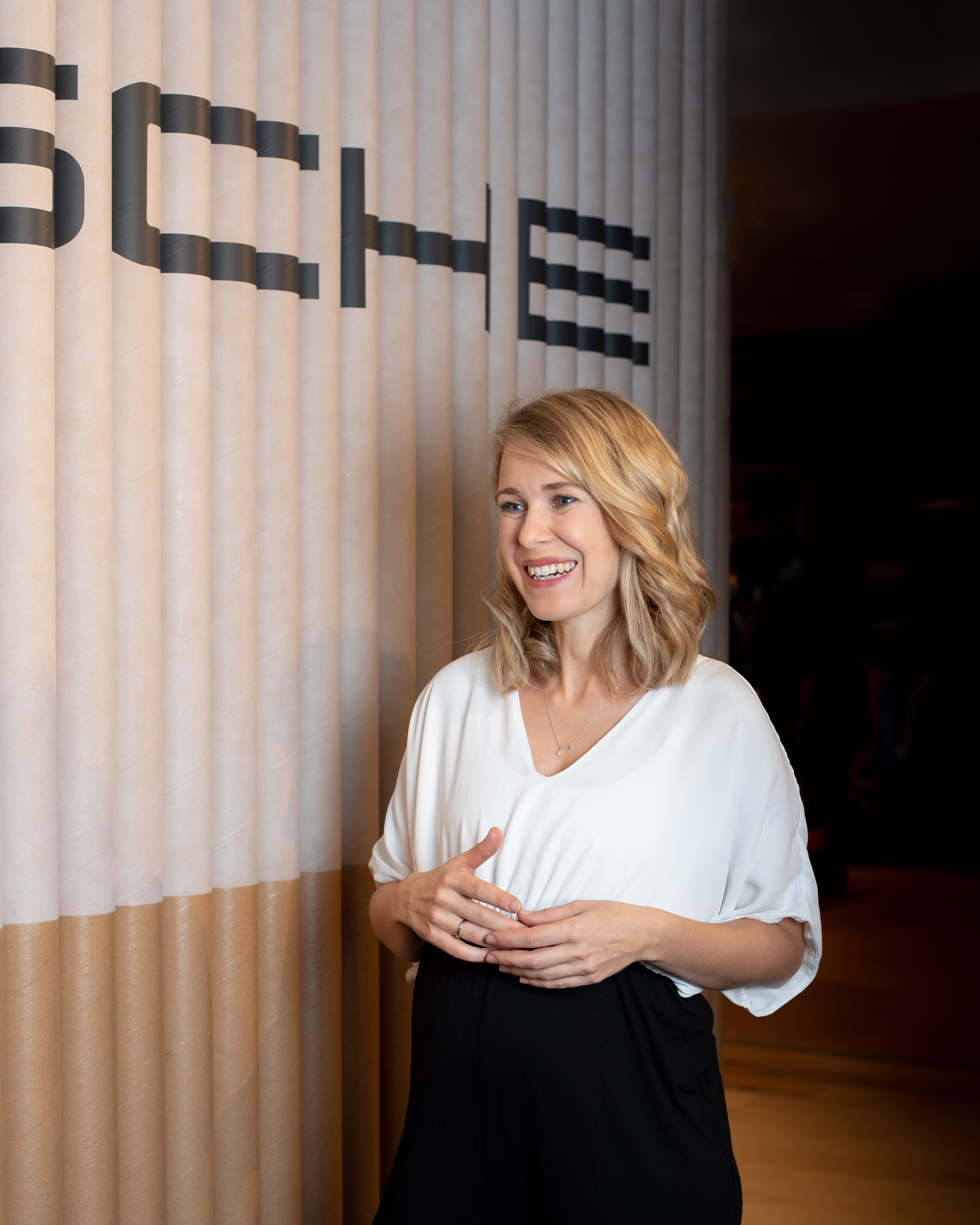As Project Manager for Sustainability at Retail, you play an important role when it comes to sustainability within the dealer organisation. What motivates you?
Anja Reder: I was particularly inspired by my stays in Tanzania and Cameroon, where I discovered my passion for a carbon-neutral way of supplying energy. During my studies in renewable energies, I set up a solar power plant to supply energy for a clinic in a village in Cameroon. Ever since then, I have wanted to do my part to ensure that we, as a society, live in harmony with our environment and thus preserve it for future generations. At Porsche, I have the opportunity to use the influence of the companyto effectuate changes to accomplish my and our sustainability objectives. This is something that I work on every day together with many other motivated colleagues with a lot of personal dedication and passion.
One of the goals of Porsche Strategy 2030 is to turn Porsche into a sustainable brand. How does the Sustainability at Retail project contribute to that?
Anja Reder: Retail is usually the first personal point of contact with our customers. The project allows us to convey our commitment to sustainability to our customers at the point-of sale, such as a Porsche Centre. Our role is to work together with our sales markets to assist retail in reducing its carbon footprint and in becoming more sustainable across the board. What that means for us – as in the Porsche Strategy 2030 – is not just reducing CO2 emissions, but also promoting social and entrepreneurial action.
What’s your approach?
Anja Reder: First of all, we want to act as a role model for our branch locations. We therefore formed a project team made up of people from the areas of Sales and Marketing, Construction, Environment and Energy Management, and the Sustainability department, to define minimum standards for new buildings and conversions of existing buildings. Those standards will have to be factored into future investments in our public-facing buildings. New locations are expected to operate with a net carbon neutral balance. For this purpose, the building should use as little energy as possible and cover the remaining demand for power as far as possible through our own renewable energy production on site. In addition, we aim for certifications to be carried out according to a locally recognised sustainability standard such as DGNB, LEED or BREEAM. The requirements are binding for our own locations and are intended to provide guiding principles for our entire dealer network.
That sounds promising. Have any dealerships already implemented the sustainability requirements?
Anja Reder: Yes, some. The German location in Stuttgart, for example, is DGNB Gold-certified. And there are many examples around the world as well. Our main sales location in the United States is LEED Gold-certified, for instance. And the Haining Porsche Centre in China is actually LEED Platinum-certified.
However, the majority of dealers already exist and are not currently constructing new buildings.. How do you support in those cases?
Anja Reder: That’s right. For dealerships that are already operating, we have set up an advisory programme together with our sales markets. This programme involves evaluating the current sustainability performance by the dealership. The dealership then receives a customised plan with short- and long-term measures that it can implement to improve its sustainability. Many of the measures are concerned with options for saving energy and the use of renewable energy sources with a view to continuing to lower CO2 emissions. The dealership also receives concrete advice on how water consumption, for example, and the share of non-recyclable waste can be reduced. Recommendations on how to get involved socially in a sustainable manner are also shared. And last but not least, ensuring long-term operational sustainability is an important aspect. What that means is, for example, having a sustainability strategy within management and defining and pursuing concrete objectives.
In addition to the traditional Porsche Centres, your department is also establishing new retail formats that bring retail to the customers. How is sustainability implemented in this context?
Anja Reder: That’s right, my colleagues have developed new formats such as the ‘Porsche NOW’ sales pop-up store, in which we bring Porsche directly to customers in their everyday environments. It’s a kind of mini-store that is set up to be flexible for a limited time in highly frequented, existing sales spaces, for example a temporarily unoccupied retail space in a department store. For this temporary sales format in particular, the Retail Design Team has placed great importance on sustainability in the design process and the selection of materials. The pop-up concept is created in large part using cardboard tubing, which is recyclable and can be re-used. We are in one of these stores at the moment. As you can see, the design is not only sustainable, but also has the classic Porsche appeal and exclusivity.
Your wish for the future is...
Anja Reder: ... that we at Porsche will stick to our goals. We can’t allow ourselves to be deterred even in difficult times. As a company, we have set ourselves ambitious goals within our sustainability strategy. I hope that we can get the retail area to keep following us as we continue down this path so that we can fulfil our objectives in this regard as well.
Info
In the interview series "Perspectives on Sustainability", Porsche employees talk about their specialist subject areas. The interview with Anja Reder is part 4 of the series.



